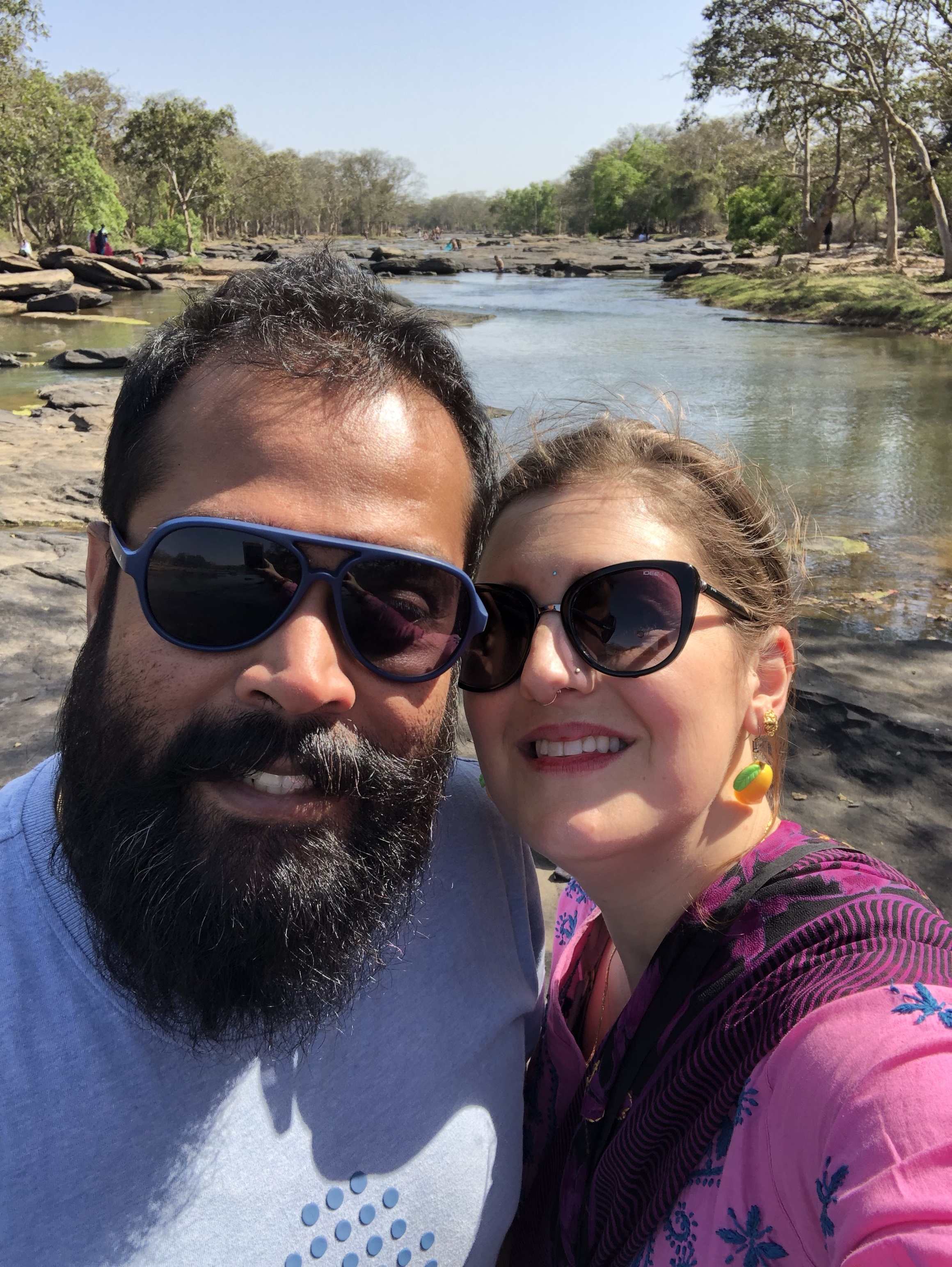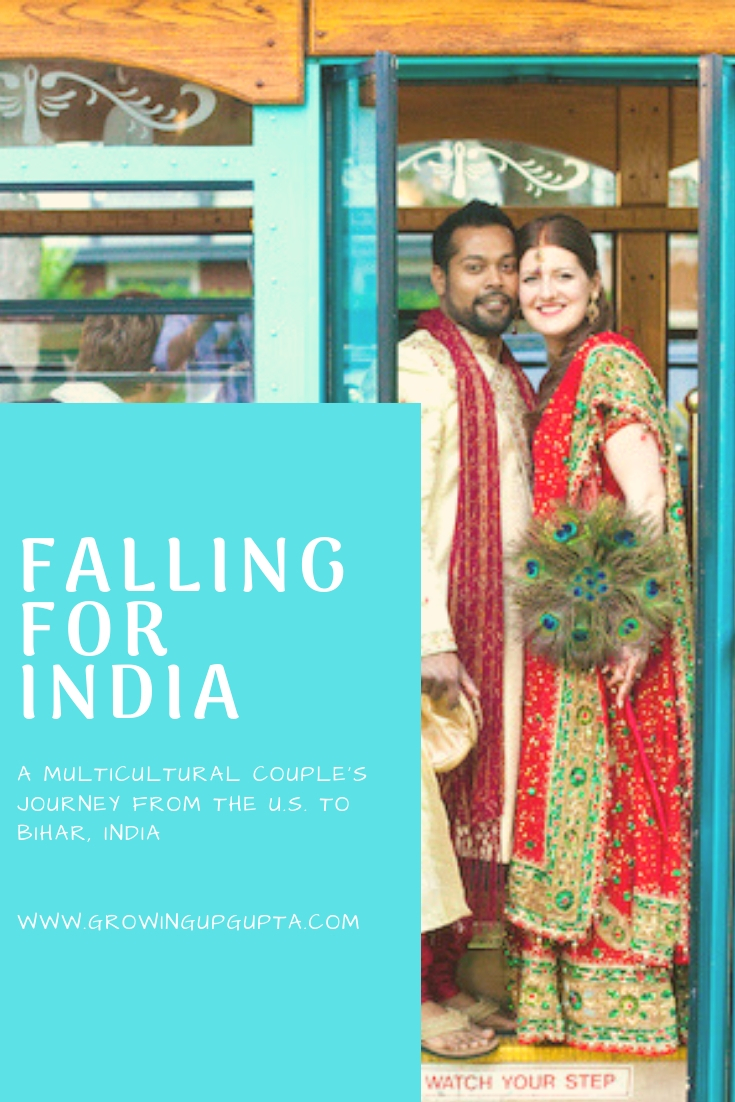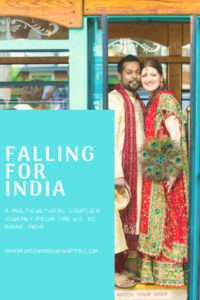
Falling For India: A Multicultural Couple’s Journey From The U.S. To Bihar, India
Interracial/Intercultural Marriage: Caucasian Woman And Indian Man
About Us
Hi, everyone! We are Abhishek and Jessica, the creators of the Podcast, “Invisible India” available on iTunes, Stitcher, Spotify, and SoundCloud.
What Are Your Ethnicities
Abhishek is Indian, and Jessica is Caucasian-American.
Where Were You Both Born And Raised
Abhishek is from Bihar, India, and Jessica is from the Midwest U.S.
How Did You Meet
Friends introduced us via an organization we volunteered with on different sides of the globe. At the time, I, Jessica was posted in India and Abhishek was in the US. Talk about a geographical flip flop!
How Long have You Been Together
We have been together for ten years and married for nine years.
Where Do You Currently Live?
We live in North India in the state of Bihar.
How Did You End Up Living In India?
I (Jessica) traveled to India in my 20’s for a business internship. I fell in love with India; it was not merely an infatuation with the people and culture. I ended up working with wonderful people who became friends, and I felt like India was my second home.
Deciding To Move To India
After meeting Abhishek, we lived in the US for six years and then decided to move to India. How did this happen? From the time we met, we conversed about living in India someday. The final decision for our move to India boiled down to our professional and personal skill sets which are tailored to doing more meaningful and fulfilling work in India than what we were able to do in the U.S. at this point in our careers.
Additionally, a couple of side benefits for us moving to India are as follows. 1.) The ability to expose our kids to India culture in its totality: the good, bad, and the ugly. 2.) Immersing our family in the Hindi language and using it to operate daily. 3.) The opportunity to be on the same side of the ocean as Abhishek’s aging parents. The full story on all things “why” we move to India is on our podcast, Invisible India, Episode 1.
How Did You Adjust To Living In India As A Foreigner
Honestly, at first, it was extremely difficult. I (Jessica) was in my 20’s, and like most American women, I highly valued my independence and desired for people to respect me and my opinion. There were a lot of frustrations and struggles that most people go through who move from the West to the East.
It isn’t the trash or dirt or crowds in India that frustrate me most of the time. It is often, for me, about the underlying patriarchy, many people’s acceptance of mediocrity and obsession with a fatalistic mentality. Those are the frustrations that still keep me up at night, now almost 15 years into engaging with Indian culture.
What Tips Do You Have For Other Non-Indians Considering Moving To India
This really depends on the person and what their desires are. I (Jessica) would say, in short, keep your expectations low. Of your productivity, of the culture’s ability to deliver what you want, of those around you, and most of all, of yourself. Give grace. LOTS of it. Practice acceptance of the less than ideal. Practice forgiveness, especially to yourself.
How Was Meeting His Parents For The First Time
Meeting His Sister First
I actually met his sister first, who lives in Canada. Going straight to the parents was a bit too much power distance gap to cover for a potential daughter-in-law. In Abhishek’s’ family, there is immense respect for your elders, and there are just some things you need to run by the lower rungs first before it reaches the top decision makers. 🙂 All in all, my meeting with my sister-in-law went well. I was more comfortable to be myself as she has lived in the West for a long time.
How My Father Met My Future-In-Laws Before I Did
My father ventured to India to meet my in-laws before I met them. He was in India on a business trip, so he made a side trip to visit them and “finalize” the engagement, I suppose.
What Happened When I Finally Met My Future-In-Laws
The first time we met was pretty laid back in my memory, but I’m sure in reality we were all nervous. My dad had already done the bulk of the work by showing up and honoring them with his visit. The first time I met them, I was actually in India alone on a project and flew to their city to stay with them. In that week, we went wedding shopping, and I bought all my bridal jewelry and sarees with them in those first days! I am very blessed to have very understanding and caring in-laws.
How Was Meeting Her Parents For The First Time
Abhishek meeting my parents for the first time was more memorable! We met my parents down at their lake house. My parents decided to engage him in all kinds of challenges and tests of his water sports skills. Given that he just learned to swim in his late 20’s, he did not impress them with his skills. However, he did impress me with his ability to manage the chaos and go with the flow!
What Obstacles Have You Encountered For Being In An Interracial/Intercultural Relationship And How Do You Deal With Them
Of course, being a foreign wife in India draws attention; however, we have learned to use it as an asset instead of a liability. How? We try to utilize our differences to show kindness to people in unique ways rather than get irritated by the extra attention. Also, being notably different races from each other, there have been times when Abhishek can get something done because he is Indian whereas my whiteness wouldn’t have the same weight with that person and sometimes vice versa and regardless of whether we are in the U.S. or India. It’s frustrating that not everyone is treated equally in this world, but it is a reality to have to deal with. And there are, of course, irritations, such as when someone makes a weird comment about one of our kids’ appearance or behavior. But for our family these are manageable, and we don’t get easily offended.
Provide Any Engagement Or Wedding Tips You Wish You Knew Beforehand
I (Jessica) am currently writing a book on this, so I hope to share more detailed perspective in the next year or so. But I can highlight my most important piece of advice. For the Indian family, a wedding is about honoring the family and passing down the traditions of the culture. It is not an event-based merely on the desires of the individual or couple. On the other hand, for Westerners, this is an event to express our personal style, taste and celebrate love. Those are two very different approaches to marriage, so finding a place where those world views can be meshed or adjusted is crucial.
Share With Us Your Top Takeaways/Advice To An Interracial/Intercultural Marriage
In our case, as an Indian/White couple. Our top takeaway would be – acknowledge Individualism vs. Communalism that affects each decision that the other person is making. We in the West, are much more centered within our own choices and feel empowered to make decisions based on what we want.
In contrast, to the West, most Indians are very connected within their family system and are expected to make life decisions based on the wants and desires of their family. Understanding that as reality will help a lot in accepting the other person and walking through life in compassion and understanding for one another.
What Do You Love About Being In An Interracial/Intercultural Marriage
Many things! In this phase of life, I (Jessica) have a sense of belonging to multiple cultures. We both had deeply experienced each other’s home culture before we met, so that helps a lot in getting through those problematic cultural adjustment periods like having our first child, changing jobs, the family of origin conflict, or moving countries.
What Is Your Biggest Challenge To Being In An Interracial/Intercultural Marriage
Continuing to learn about ourselves and communicate that with the other person as we journey together is probably our biggest challenge. We can both say that we are different people now than we were ten years ago. We are glad that we have been able to journey and grow and change together. Moving overseas is one of those life-changing events that cause us to evolve. Frustrations and joys hit us in different ways and at different times. Just being in touch with ourselves and each other is one of those things which has helped us to overcome those differences.
What Are You Still Learning From Being In An Interracial/Intercultural Marriage?
I (Jessica) am learning how to be more gentle and understanding about my expectations to produce and get stuff done. I always need to challenge myself to seek a healthier perspective on “being vs. doing.”
Have a question for us? Write to us at growingupgupta@gmail.com!
This post contains affiliate links which support the operation of this blog!
Pin this post for later here!




















